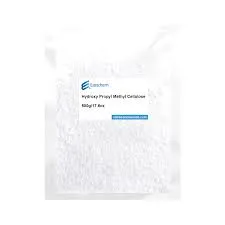
Nov . 05, 2024 18:19 Back to list
hydroxyethyl cellulose uses
The Versatile Uses of Hydroxyethyl Cellulose
Hydroxyethyl cellulose (HEC) is a non-ionic, water-soluble polymer derived from cellulose, an abundant natural polymer found in plants. HEC has garnered significant attention due to its unique properties, such as its ability to form gel-like structures, retain moisture, and enhance viscosity. These characteristics make it a favored ingredient across a variety of industries, ranging from pharmaceuticals to cosmetics and industrial applications. This article will explore the diverse uses of hydroxyethyl cellulose, highlighting its importance in several sectors.
1. Pharmaceutical Applications
In the pharmaceutical industry, hydroxyethyl cellulose serves multiple roles. One of its primary applications is as an excipient in tablet formulations. Its excellent binding properties help ensure uniformity in dosage and enhance the mechanical strength of tablets. Additionally, HEC is used in sustained-release formulations, where it controls the release of active ingredients over an extended period. This ability to modulate drug release rates is particularly beneficial for medications requiring consistent therapeutic levels in the bloodstream.
HEC also finds utility in topical applications, such as creams and gels. It functions as a thickener and stabilizer in formulation, providing a smooth texture and improved spreadability. Furthermore, its hydrophilic nature allows HEC to retain moisture, which is vital for maintaining skin hydration in various dermatological products.
2. Cosmetic Uses
The cosmetic industry extensively uses hydroxyethyl cellulose due to its multifunctional properties. In skincare products, HEC is prized for its thickening prowess, giving creams and lotions a desirable consistency. It is also utilized in hair shampoos and conditioners, where it enhances viscosity and helps improve the application experience.
Moreover, HEC acts as an emulsifier, ensuring that oil and water ingredients remain mixed. This quality is particularly significant in products such as moisturizers and sunscreens, where stable emulsions are crucial for effectiveness. Its ability to form films also makes it a useful ingredient in products designed to provide a protective barrier on the skin, enhancing moisture retention and calming irritation.
3. Food Industry Applications
hydroxyethyl cellulose uses

Hydroxyethyl cellulose is not limited to pharmaceuticals and cosmetics; it also plays a vital role in the food industry. As a food additive, HEC is classified as a thickening agent and stabilizer in various food products. It can improve the texture and mouthfeel of items such as sauces, dressings, and dairy products.
Furthermore, HEC acts as a fat replacer in low-fat and reduced-calorie food formulations, helping to achieve a creamy texture without the addition of excess calories. Its stabilizing properties prevent the separation of ingredients, ensuring consistent quality and longevity of shelf life.
In industrial settings, hydroxyethyl cellulose is valued for its water-retaining and film-forming properties. It is commonly used in construction materials such as cement and gypsum-based products, where it improves workability and extends the open time of materials, allowing for better application before setting.
Additionally, HEC is employed in the oil and gas industry, particularly in hydraulic fracturing fluids, where it serves as a thickener, enhancing the fluid's ability to carry proppants to fractures. This application is critical for maximizing the efficiency and effectiveness of extraction processes.
5. Environmental Applications
Interestingly, hydroxyethyl cellulose has also found its way into environmental applications. It can be used in the formulation of biodegradable products, helping to create eco-friendly alternatives to conventional plastics. Its role in water retention makes it valuable for soil conditioning and agriculture as well, aiding in moisture retention for better crop production.
Conclusion
Hydroxyethyl cellulose is a remarkable polymer with wide-reaching applications across multiple industries. Its unique properties, such as water solubility, thickening ability, and film-forming characteristics, have established it as a crucial ingredient in pharmaceuticals, cosmetics, food production, industrial materials, and even environmental solutions. As industries continue to innovate and seek sustainable alternatives, the significance of hydroxyethyl cellulose is likely to grow, underscoring its role in advancing both product performance and environmental stewardship.
-
Versatile Hpmc Uses in Different Industries
NewsJun.19,2025
-
Redispersible Powder's Role in Enhancing Durability of Construction Products
NewsJun.19,2025
-
Hydroxyethyl Cellulose Applications Driving Green Industrial Processes
NewsJun.19,2025
-
Exploring Different Redispersible Polymer Powder
NewsJun.19,2025
-
Choosing the Right Mortar Bonding Agent
NewsJun.19,2025
-
Applications and Significance of China Hpmc in Modern Industries
NewsJun.19,2025







